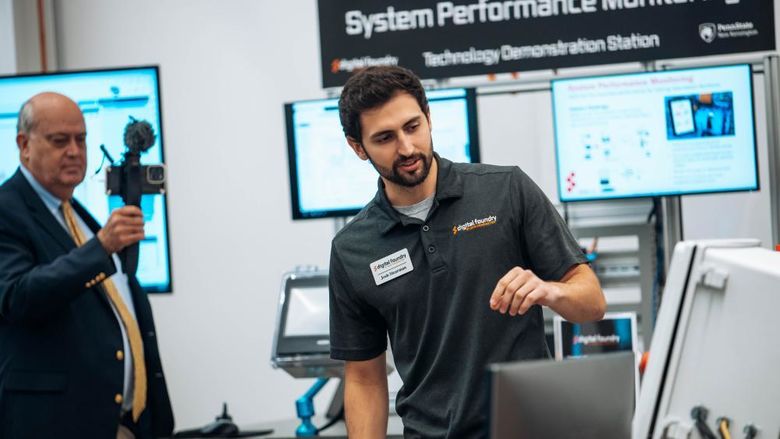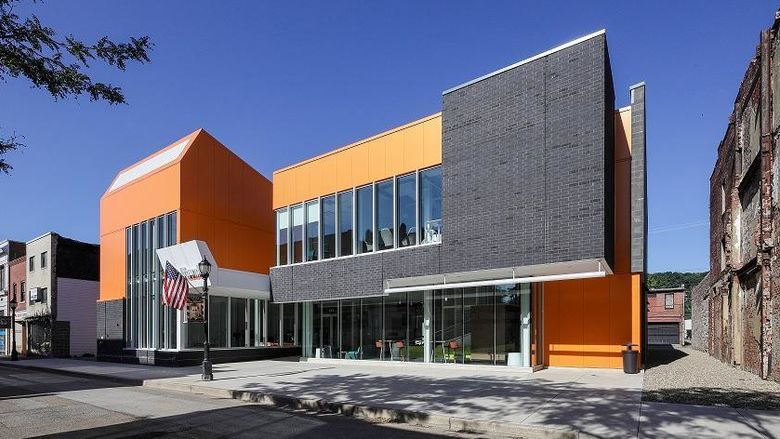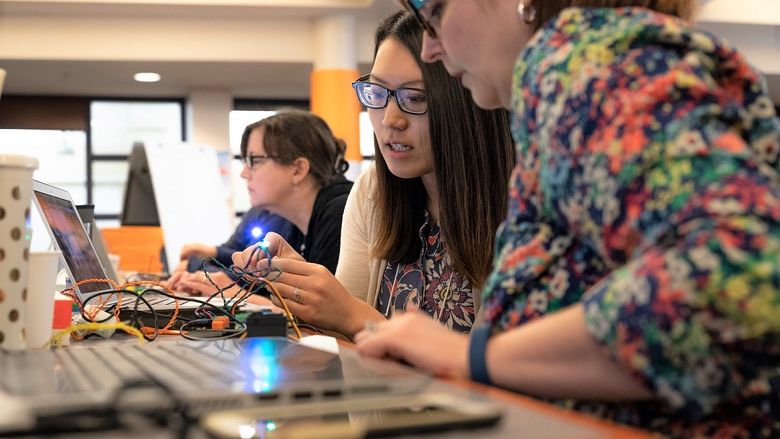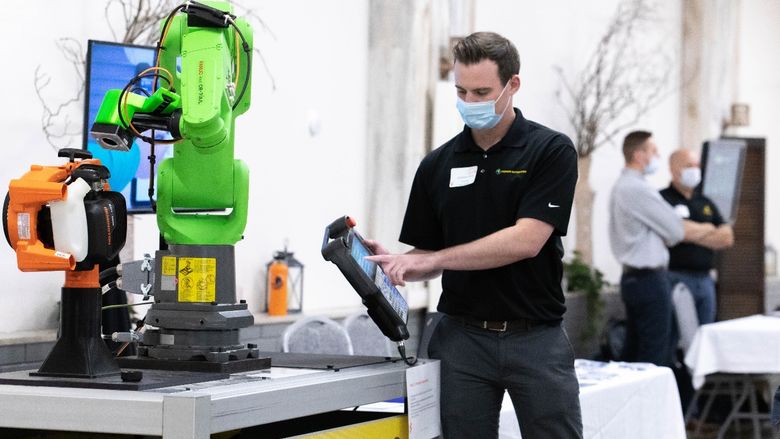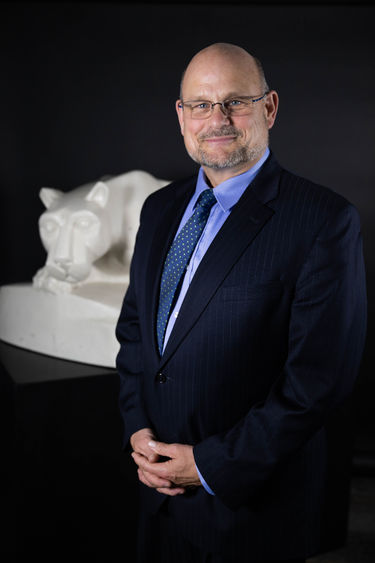
Kevin Snider, chancellor of Penn State New Kensington since 2008, announced his plans to retire from the University effective Dec. 31, 2024.
NEW KENSINGTON, Pa. — Kevin Snider, chancellor of Penn State New Kensington, has announced his plans to retire from the University effective Dec. 31.
Snider has served as the campus’ leader since 2008.
"I have had the good fortune and honor of being the chancellor at Penn State New Kensington for 16 years," said Snider. "It is a privilege to work with such dedicated faculty and staff on transforming the lives of students, and it is a pleasure to do that in an environment where people care about each other. When I arrived at New Kensington, I started to work on building the campus and building the community. I will be eternally grateful to those on our campus who understood that the future of our campus and the future of the community were intricately related and worked toward a vision of prosperity."
Under his leadership, the New Kensington campus has become known for embracing innovation, creating a student-centered environment, engaging with the local community, and continuing its history of excellence. Always putting the University’s land-grant mission at the forefront, the Snider has been the driver of numerous major initiatives on behalf of the campus and University, including:
-
The founding of the Westmoreland Economic Development Corporation for Growth (WEDIG), a consortium of five local municipalities.
-
ABC CREATE, a New Kensington campus-led collaborative of 14 school districts aimed at preparing the region’s next generation of students and enhancing educator training through STEAM education curriculum and project design.
-
The Corner Launchbox, one of Penn State’s first Invent Penn State innovation hubs, which opened in 2017 in the heart of downtown New Kensington, which was the foundation to the city’s revitalization efforts and offers training and mentoring for entrepreneurs and small-business owners, as well as low-cost coworking space.
-
The Digital Foundry at New Kensington, a 15,044-square-foot manufacturing and technology hub that celebrated its opening in 2022 and is located near The Corner, created to bolster southwestern Pennsylvania's manufacturing, workforce, education and community strength in future-ready skill sets and industry.
-
Helping the campus secure millions of dollars in grants, foundation, public and private funding, including leading three projects under southwestern Pennsylvania’s Build Back Better Regional Challenge (BBBRC) grant under the U.S. Economic Development Administration’s American Rescue Plan. These BBBRC projects include The Digital Foundry and The Corner serving as one of four regional innovation accelerators; the campus leading future-readiness professional development initiatives for the region’s 29 higher education institutions; and expanding The Digital Foundry’s entry-level digital manufacturing certificate program to the Penn State Beaver and Greater Allegheny campuses this year.
“Dr. Snider’s innovative and entrepreneurial spirit has positioned Penn State New Kensington to be at the forefront of workforce education efforts, preparing students with career-ready skill sets,” said Margo DelliCarpini, vice president for Commonwealth Campuses and executive chancellor. “Dr. Snider’s ability to develop relationships with government, educatio, and community in the creation of The Corner Launchbox and The Digital Foundry has been remarkable, and his accomplishments will leave a lasting impact on our students and the surrounding community.”
Through his work, Snider has helped expand industry partnerships, future-ready knowledge and skill sets throughout the region, unique opportunities for New Kensington campus students, and regional, state and national attention on the Alle-Kiski Valley region just north of Pittsburgh.
“Kevin’s innovative vision and approach has been such a major factor in the revitalization of the city of New Kensington,” said Tom Guzzo, mayor of New Kensington. “His drive to place Penn State as an anchor in our downtown Corridor of Innovation with The Corner and The Digital Foundry will have an impact that will be felt for generations to come. The Corner's programs have helped so many of our new small-business owners prepare to realize their dreams and be successful, and The Digital Foundry will prepare people to work in smart manufacturing and technology jobs now and into the future.”
Since his arrival in 2008, Snider worked with community leaders like Guzzo to transform the meaning of a town and gown partnership.
"Together with community partners, we have established a new relationship between city and community and demonstrated that this relationship can bring tremendous benefit to both," explained Snider. "It has been a heck of a ride, and we’ve created a fantastic base, and now it is time for others to take this model to the next level."
Guzzo added, “Kevin deserves so much credit for our successes in our downtown district. So much that has been accomplished would not have happened if it were not for Kevin’s ideas and confidence that Penn State could play a huge role in helping revitalize our city.”
The aforementioned projects are all part of Snider’s goal to create a transferable model to prepare a Rust Belt community for the rapidly changing world, known by some as the fourth industrial revolution or Digital Age. Through the development of Nextovation, an inclusive and collaborative initiative focused on real change and revitalization of the city of New Kensington in the new digital economy, Snider has engaged more than 30 corporate, government, educational, foundation and community partners. The goal of Nextovation is to build future sustainability by embracing and fostering innovation in every sector of business, education level, government and throughout the entire community.
"I am immensely proud of what we've achieved in innovation and in preparing our region for the digital era," Snider said. "Our pioneering approach of Nextovation that seamlessly blends initiatives across K-12 education, workforce development, entrepreneurship, faculty future readiness, community engagement, economic revitalization, and higher educational programming sets a precedent for regions worldwide. The collaborative efforts across various sectors ensure that the Alle-Kiski Valley nurtures a workforce equipped with digital age skills, spanning all educational levels and occupations, and it is both humbling and truly remarkable."
Before his retirement in December, Snider will help Megan Nagel, current chancellor and chief academic officer of Penn State Greater Allegheny, assume leadership as part of the University’s new regional leadership model.
“I am grateful that Dr. Snider has agreed to remain in his position through December to allow for a smooth transition of leadership,” said DelliCarpini. “His strategic approach to higher education leadership and his thought partnership have been invaluable to me.”
Snider’s rise in administration and higher education began at American University, where he was an adjunct faculty member and institutional research analyst. He then moved to Indiana State University where he served in multiple roles, including director of institutional research and testing, assistant vice president of institutional research and assessment, and interim associate vice president for enrollment management before becoming chief of staff and executive assistant to the president for strategic planning, institutional research and effectiveness.
He received bachelor’s and master’s degrees in international relations from San Francisco State University and a doctorate in political science from American University. He and his wife, Sarah, currently live in Allegheny Township and are proud parents of Andrew and Tyler, both graduates of Penn State. After his retirement at the end of December, he plans to continue working to help students and communities and have additional time for hobbies such as songwriting, boating and reading.

